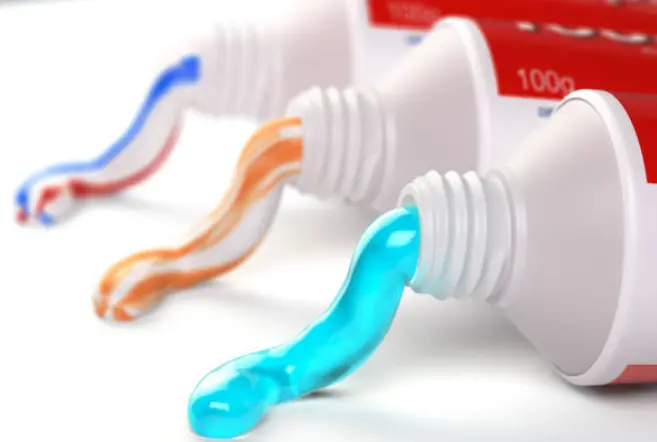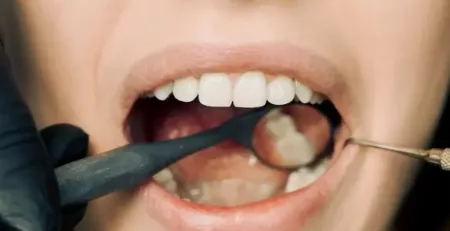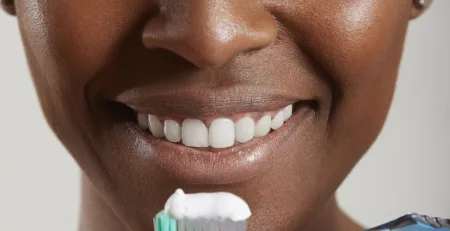10 different type of Toothpastes

Introduction:
In this articel we lookat different type of Toothpastes
Toothpaste is a fundamental component of daily oral hygiene, playing a pivotal role in maintaining healthy teeth and gums. With a vast array of toothpaste types available in the market, it can be overwhelming to choose the one that best suits individual oral health needs.
Each variant comes equipped with specific ingredients tailored to address various dental concerns, ranging from preventing tooth decay to whitening teeth and soothing sensitivity. Understanding the distinct characteristics and benefits of different toothpaste types empowers individuals to make informed decisions about their oral care routine.
In this article, we will delve into ten diverse toothpaste varieties, exploring their unique features and the advantages they offer, so that you can identify the perfect match for your oral health requirements.
- Fluoride Toothpaste: Fluoride toothpaste is the most widely used type, containing fluoride, a mineral that helps strengthen tooth enamel and prevent tooth decay. It protects teeth from acid attacks by forming a protective layer on the enamel surface, making it more resistant to harmful bacteria and acids. Regular use of fluoride toothpaste, along with proper brushing techniques, can significantly reduce the risk of cavities and promote overall oral health.
- Whitening Toothpaste: This toothpaste is formulated to remove surface stains and discoloration from teeth, helping to achieve a brighter smile. It contains mild abrasives or chemical agents like hydrogen peroxide or baking soda that gently polish the teeth and break down stains. However, it’s important to note that whitening toothpaste may not produce drastic whitening results, especially for deep stains or intrinsic discoloration.
- Sensitivity Toothpaste: Designed for individuals with sensitive teeth, this toothpaste helps alleviate discomfort caused by exposed dentin or worn enamel. It contains ingredients like potassium nitrate or strontium chloride, which block the tiny tubules in the teeth, reducing sensitivity to hot, cold, and sweet stimuli. With regular use, sensitivity toothpaste can provide long-term relief and allow individuals to enjoy their favorite foods without discomfort.
- Herbal/Natural Toothpaste: This type of toothpaste is formulated using natural ingredients, such as herbal extracts, essential oils (like peppermint or tea tree oil), and plant-based components. It often avoids artificial colors, flavors, and chemical additives. Herbal toothpaste offers a more eco-friendly and potentially gentler option for those who prefer natural products. However, it’s essential to check the fluoride content in herbal toothpaste, as some may not contain fluoride, which is crucial for preventing tooth decay.
- Tartar Control Toothpaste: Tartar control toothpaste helps prevent the formation of tartar (hardened plaque) on teeth. It typically contains pyrophosphate or zinc citrate, which hinder tartar buildup by inhibiting the mineralization of plaque. While it can slow down tartar formation, it may not entirely replace professional dental cleanings to remove existing tartar. Regular use can, however, maintain a cleaner mouth and reduce the risk of gum disease and cavities.
- Baking Soda Toothpaste: Baking soda toothpaste includes sodium bicarbonate, a mildly abrasive substance that can help remove surface stains from teeth without causing significant enamel damage. Baking soda’s alkaline properties also create an environment less favorable for bacteria, which may contribute to fresher breath. This type of toothpaste is generally considered safe for everyday use and can be an excellent option for people seeking a natural alternative to traditional toothpaste.
- Children’s Toothpaste: Specifically designed for kids, children’s toothpaste comes in fun flavours and appealing packaging to encourage regular brushing. It typically contains lower fluoride levels suitable for young children who may still be learning to spit out excess toothpaste. Children’s toothpaste helps protect young teeth from decay while making brushing a more enjoyable experience, setting the foundation for good oral hygiene habits later in life.
- Gum Care Toothpaste: Gum care toothpaste is tailored to promote gum health and combat gingivitis. It contains ingredients like stannous fluoride or triclosan, which help reduce gum inflammation and bleeding. Additionally, it may have antibacterial properties to fight harmful bacteria in the mouth. Using gum care toothpaste, combined with proper brushing and flossing techniques, can help prevent or manage gum disease, supporting overall oral health.
- Desensitizing Toothpaste: Similar to sensitivity toothpaste, desensitizing toothpaste is intended for people with severe tooth sensitivity. It contains higher concentrations of active ingredients, such as potassium nitrate or strontium chloride, to provide more robust relief from sensitivity. Desensitizing toothpaste works by blocking the nerve pathways that transmit pain signals, helping individuals with sensitive teeth to enjoy their favorite foods and beverages without discomfort.
- Smokers Toothpaste: Smokers toothpaste is specifically formulated to tackle the challenges faced by smokers, such as stained teeth and bad breath caused by tobacco use. It often contains stronger abrasives or whitening agents to remove tobacco stains and freshen breath. While smokers toothpaste can improve the appearance of teeth, it’s essential to remember that the most effective way to maintain oral health for smokers is to quit smoking altogether. Professional cleanings and regular oral care are still crucial for overall dental well-being.
Conclusion:
As we conclude this exploration of ten different types of toothpaste, it becomes evident that no one-size-fits-all approach exists when it comes to oral care.
Selecting the ideal toothpaste hinges on individual dental needs, preferences, and concerns.
Fluoride toothpaste stands as the stalwart guardian against tooth decay, while whitening toothpaste brightens smiles with gentle yet effective stain removal. Sensitivity toothpaste brings comfort to those with delicate teeth, while herbal and natural toothpaste offer a sustainable and gentle alternative for eco-conscious individuals.
Additionally, tartar control toothpaste prevents stubborn build-up, and baking soda toothpaste provides a natural and mildly abrasive solution. Children’s toothpaste paves the way for lifelong dental hygiene habits, while gum care and desensitizing toothpaste cater to specific gum and sensitivity issues.
Lastly, smokers toothpaste addresses challenges unique to tobacco users. Armed with this knowledge, individuals can confidently embrace their oral care routine, ensuring not only healthier teeth but also radiant smiles that exude confidence and well-being.
Remember, regular dental check-ups and professional advice remain vital pillars of oral health, complementing the power of the right toothpaste in achieving a brighter and healthier smile.




Leave a Reply